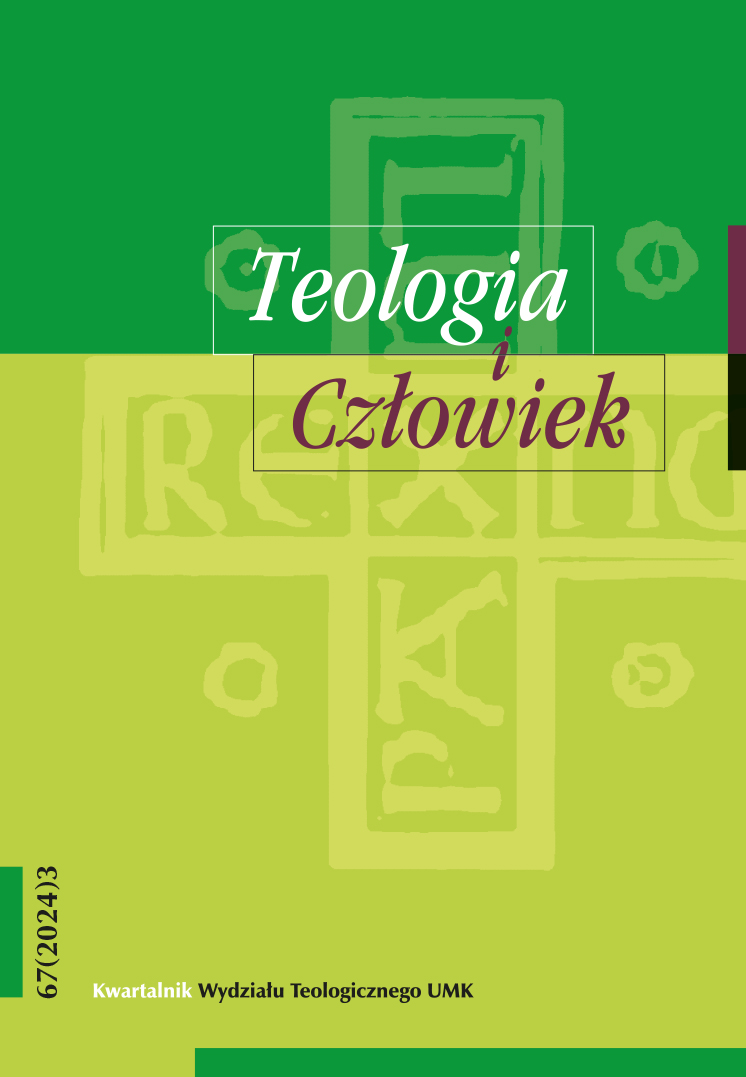Clericalism as an Important Cause for the Reform of Canon Penal Law
DOI:
https://doi.org/10.12775/TiCz.2024.017Keywords
clericalism, Pascite gregem Dei, amendment of canon penal law, Book VI of the CIC/83Abstract
It is widely believed that the main reason for the amendment of Book VI of the CIC/83 was sexual abuse in the Church. However, crimes contra sextum cum minore also include those that result from the exaggerated exploitation of the social standing that the clergy have enjoyed in many countries. The particular nature of these crimes is associated with the phenomenon of clericalism, which stands in contradiction with the essence of the Church as shown by Pope Francis in his teaching. The author argues that this has been an important reason for the revision of Book VI and supports his argument by explaining the social considerations of the phenomenon in question. The definitions of crimes introduced in the CIC/83 as a result of the reform are aimed at overcoming clericalism.
References
Arrieta, Juan Ignacio. „L'influsso del cardinale Ratzinger nella revisione del sistema penale canonico.” La Civiltà Cattolica 161, nr 3851 (2010): 430-440.
Bernal, José. „Sentido y régimen jurídico de las penas expiatorias.” Ius Canonicum 38, nr 76 (1998): 595-615. https://doi.org/10.15581/016.38.15887.
Codex Iuris Canonici auctoritate Ioannis Pauli PP. II promulgatus (25.01.1983). AAS 75 (1983). pars II: 1-317. Znowelizowana Księga VI: AAS 113 (2021): 537-555.
Codex Iuris Canonici Pii X Pontificis Maximi iussu digestus Benedicti Papae XV auctoritate promulgatus. Città del Vaticano: Libreria Editrice Vaticana, 1918.
De Lubac, Henri Méditation sur l’Eglise. Paris: Aubier, 1953.
De Lubac, Henri. Catholicisme. Les aspects sociaux du Dogme. Paris: Du Cerf, 1938.
Franciszek, Esortazione apostolica «Evangelii Gaudium», AAS 105 (2013): 1019-1113. (dostęp: 28.10.2023).
Franciszek. Constitutio Apostolica «Pascite gregem Dei» qua Liber VI Codicis Iuris Canonici reformatur (23.05.2021). AAS 113 (2021): 534-637.
Grocholewski, Zenon. „Specyfika prawa Kościoła katolickiego. Referat wygłoszony z okazji otrzymania tytułu doktora honoris causa Uniwersytetu im. Adama Mickiewicza w Poznaniu, dnia 7 maja 2004.” Poznańskie Studia Teologiczne 17 (2004): 19-33.
Jan Paweł II. Ad Romanae Rotae Praelatos, auditores, officiales et advocatos anno iudiciali ineunte (18.01.1990), AAS 82 (1990): 872-877.
Klepka, Rafał. „Klerykalizm.” W Encyklopedia bezpieczeństwa, t. 5, red. Olga Wasiuta, Sergiusz Wasiuta, 370-375. Kraków: Wydawnictwo Libron, 2022.
Klostermann, Ferdinand. „Demokracja i hierarchia w Kościele: przemiany w kierowaniu Kościołem,” Collectanea Theologica 43, nr 2 (1973): 5-20.
Kongregacja Nauki Wiary, Normae de gravioribus delictis (21.05.2010). AAS 102 (2010): 419-434.
Kuśmierski, Stanisław. Opinia publiczna. Wprowadzenie do teorii. Warszawa: Wydawnictwa Wyższej Szkoły Ekonomicznej, 1997.
Mikalonis, Marco Jonas. “El poder humano en la interpretación de Rm 13, 1 de Santo Tomás de Aquino,” Scripta mediaevalia 10, nr 2 (2017): 57-82.
Otaduy, Javier. “Los medios interpretativos de la ley canónica (y su relación con las distintas doctrinas de la interpretación).” Ius Canonicum 35, nr 70 (2018): 447-500, https://doi.org/10.15581/016.35.17197.
Renken, John A. The Penal Law of the Roman Catholic Church. Commentary on Canons 1311-1399 and 1717-1731 and Other Sources of Penal Law. Ottawa: Saint Paul University 2015.
Schärtl, Thomas. „Amerikanischer Albtraum. Die perfide Interpretation des Missbrauchs,” Stimmen der Zeit 143, nr 11 (2018): 753-768.
Sobór Watykański II. Constitutio dogmatica de Ecclesia «Lumen gentium» (21.11.1964). AAS 57 (1965): 5-67.
Staniszewski, Robert. „Opinia publiczna – teoretyczny sens i zakres pojęcia.” Studia Politologiczne 25 (2012): 108-124.
Zajączkowska, Beata. „Papież we włoskiej telewizji: ideologia nie może odbierać miejsca Ewangelii,” https://www.vaticannews.va/pl/papiez/news/2022-02/papiez-we-wloskiej-telewizji.html (dostęp: 27.10.2023).
Downloads
Published
How to Cite
Issue
Section
License
Copyright (c) 2024 Adam Jaszcz

This work is licensed under a Creative Commons Attribution-NoDerivatives 4.0 International License.
CC BY ND 4.0. The Creator/Contributor is the Licensor, who grants the Licensee a non-exclusive license to use the Work on the fields indicated in the License Agreement.
- The Licensor grants the Licensee a non-exclusive license to use the Work/related rights item specified in § 1 within the following fields: a) recording of Work/related rights item; b) reproduction (multiplication) of Work/related rights item in print and digital technology (e-book, audiobook); c) placing the copies of the multiplied Work/related rights item on the market; d) entering the Work/related rights item to computer memory; e) distribution of the work in electronic version in the open access form on the basis of Creative Commons license (CC BY-ND 3.0) via the digital platform of the Nicolaus Copernicus University Press and file repository of the Nicolaus Copernicus University.
- Usage of the recorded Work by the Licensee within the above fields is not restricted by time, numbers or territory.
- The Licensor grants the license for the Work/related rights item to the Licensee free of charge and for an unspecified period of time.
FULL TEXT License Agreement
Stats
Number of views and downloads: 243
Number of citations: 0



